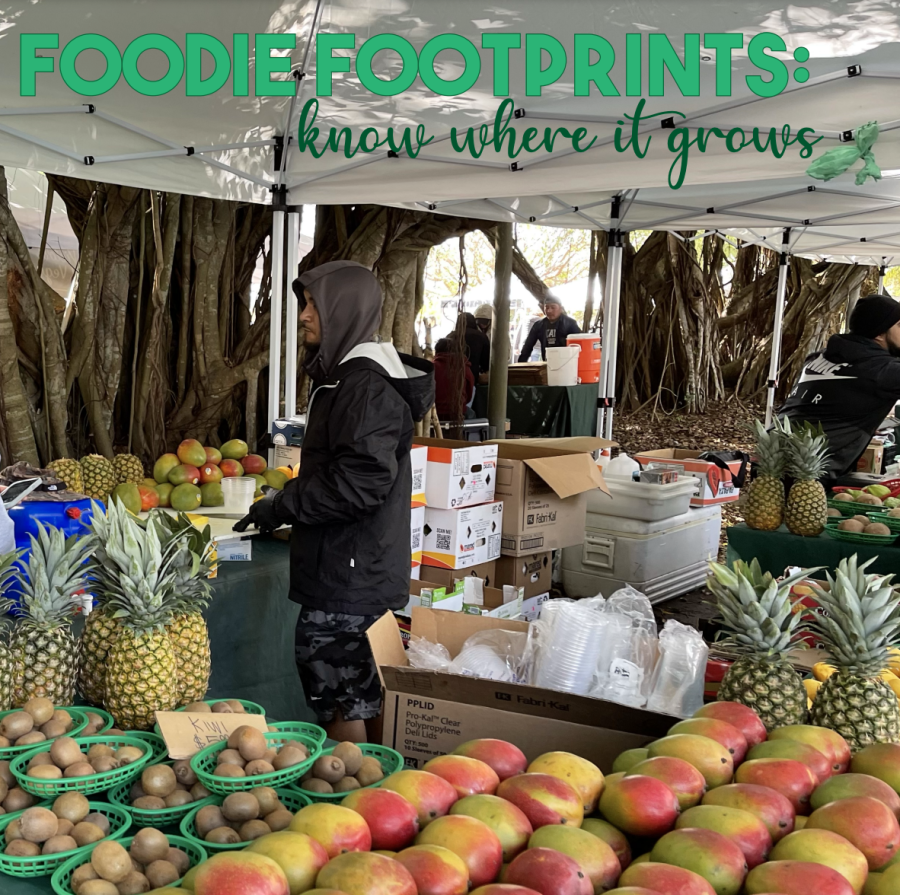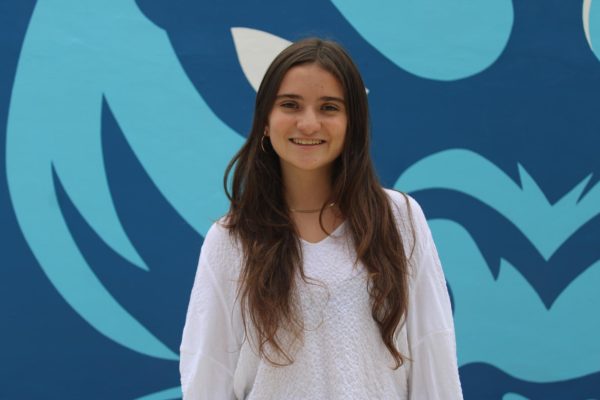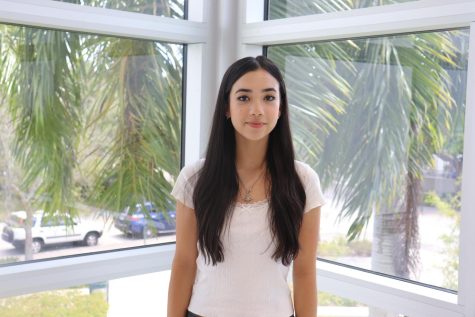Foodie Footprints: Know Where it Grows
January 23, 2023
Carbon footprints — “a measure of the amount of carbon dioxide and other carbon compounds emitted due to the consumption of fossil fuels by a particular person, group, etc.” So, what happens when food is brought into the equation? One’s carbon “foodprint” is the relative amount of fossil fuels necessary to transport food from site to supermarket and the carbon dioxide emitted into the atmosphere throughout the process. Putting too much carbon dioxide into the atmosphere when coal, gas and oil are burned to run cars and electricity directly contributes to global warming — the rapid, long-term warming of the Earth.
Consider this: while shopping for produce at the supermarket, the label on a banana reads, “Chiquita Banana: Guatemala.” What steps were taken to transport that singular banana across the two countries and around six states in order to get it to that supermarket? Was it transported by land or sea? All of these steps often require massive intakes of fossil fuels. In order to minimize one’s “foodprint,” consider shopping locally for produce and other food products.
With his involvement in the agricultural business for 45 years, Victor Lara and his family’s all-organic, locally sourced produce can be found on Instagram at @myexoticfruits, at the Pinecrest Gardens Farmers Market every Sunday from 8:00 a.m. to 2:00 p.m. and at similar markets all throughout South Florida.
“[Fruit comes from] the Redland area, the agricultural community down there. It’s a big part of the fruits and actual vegetables that are spread out through Florida and the United States,” Lara said. “We go out and pick, or sometimes my friends and my neighboring farmers they have everything pre-bought so they’ll just pick, or I either trade with them or buy off of them or vice versa and [it’s] basically a family business. My family has been in business for over 45 years. So, a lot of work, but it pays off.”
Local organic farmers frequently come across challenges in terms of maintaining pesticide-free crops; owners like the Lara family encounter many obstacles while treating their organic crops.
“For instance, five years ago there was a big fruit fly epidemic, so the USDA [U.S. Department of Agriculture] came down hard and wanted to use some types of chemicals like Neem oil, or even lemon juice, there’s even some bugs that you can use that fight out certain types of insects that actually do damage to the food but we try to keep it as natural as possible,” Lara said. “It’s even difficult because in the Redlands and agriculture community, there’s nurseries but they have to spray [pesticides], and sometimes if the winds are blowing around it gets around.”
For Lara and his family, the benefits of eating locally grown fruits and vegetables extend beyond environmental concerns.
“You want to eat locally grown because a lot of the produce that come in from Central America or South America are picked green, sometimes or in most cases they have to use some type of gas or hormone. For instance, tomatoes when they’re coming in from Mexico, they pick ‘em super green, green as can be, and overnight, they put them in a big cooler and they release some type of hormone or gas that makes them turn red and they ripe. Opposed to locally grown, everything is vine-ripe, it turns red and right on the vine and actually since it’s doing that the taste is intense,” Lara said.
Just behind the ‘My Exotic Fruits’ stand located in Pinecrest Gardens, Lara’s aunt, Laura Ramirez and her husband Victor are owners of ‘Laura’s and Victor’s Fresh Fruits and Vegetables.’ Incorporated in 2019, their vegetable stand has gained traction from the Pinecrest and South Florida communities alongside their family.
“I grow some stuff like greens, I grow tomatoes, the green beans, the artichokes and other things,” Victor Ramirez said. “[The agricultural business] is good, it’s a lot of work, we attend to people who are growing for me, I go get it later, after 40-90 days, I go pick them up and they pay and we all get our money. [The farmers are] in the area where they are living in Florida City.”
Similar to her nephew, Laura Ramirez aims to encourage others to shop for their food locally, supporting the environment and small businesses like those of her family.
“[Shopping local] helps the economy, locally grown food and farms is good, it’s better. It’s a little hard working like that but it’s important to move the commercial produce here and make sure that [there’s people in the community buying the product],” Laura Ramirez said.
Maintaining a truly local experience, Lara, Victor and Laura Ramirez prioritize selling organic produce and express their appreciation for bringing their businesses to an environment surrounded by family and friends.
“My grandma and my grandpa had 15 kids and we’ve been in this business for a very long time, even Lily [his coworker] is my cousin, I know the orchid people, it’s a great place to work,” Lara said. “Shop more local! It’ll keep you healthy, it’ll give you flavor, it’ll give you quality and helps your community out as well.”









